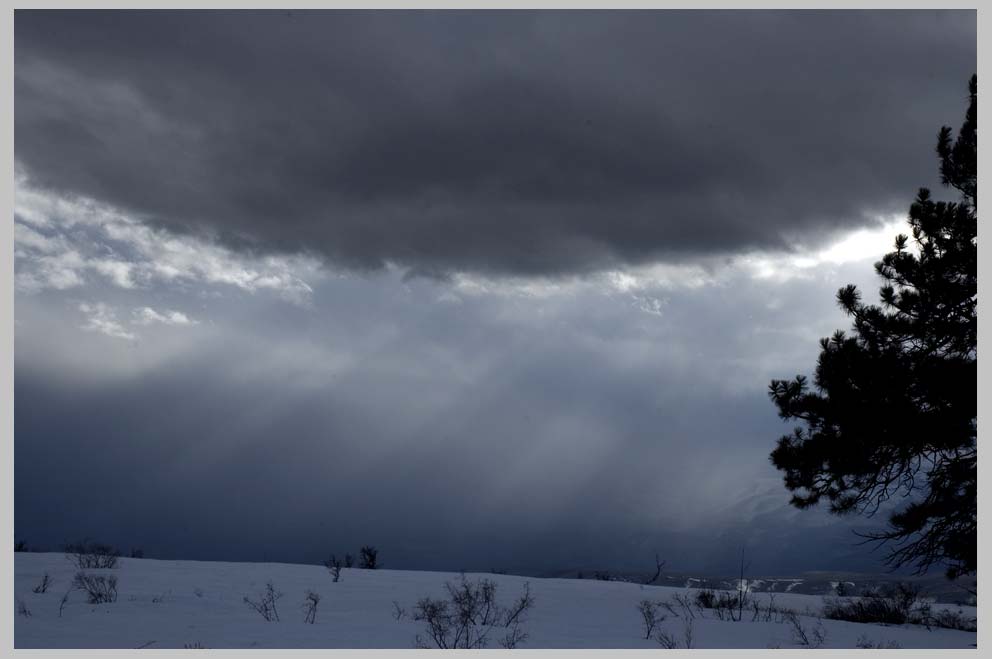
March Storm, approaching . . .
On the road in the American Northwest.

March Storm, approaching . . .
On the road in the American Northwest.
ON THE ILLUSION OF INDEPENDENCE
(I)
The further we go into the unknown of the wilds, the more
we become aware, not, as one might think, of how free,
or how self-sufficient, we are. No. It soon becomes clear
that each of us is nested in a web, a web of human mutual
dependence which always goes two ways. We are indeed
a thoroughly social species.
Strange thought, is it not? "I don't need anybody!" It comes,
some say, with money, especially an excess of money.
Money, as we know, can 'grow' in an abstract way without
limit. This gives us the comforting illusion of a natural world
which also can grow without limit: giant trees that can be
cut down forever; springs that flow clean and pure into
eternity. Money also conjures up for us a kind of robust
and absolute idea of independence. What I need I buy.
At the neighborhood store there is an endless supply of
toilet paper and coffee cans. Buy one, and somehow,
magically, another materializes to take its place. These
are the two prime and unavoidable confusions inherent
to money which make it possible—even seem absolutely
necessary—to sustain failed, utterly bankrupt, economic
systems of thought.
Folly?
Yes, I would say so. We might ask the explorers who
went to the Poles 100 years ago. Or those who went to
the Moon and back just forty years ago. Once those
amazing expeditions were 'out there,' they became
necessarily proud exemplars of independence and self-
sufficiency. Yet it was this extreme isolation itself that
brought into intensely sharp focus both the limits of such
isolation, and the delicate yet movingly beautiful reality
of this human web of mutual dependence.
Alone in the physical, earth-bound realm, we are nothing.
Remarkably, this is what we grow aware of the further out
we go, and the more surrounded by that nothingness we
become.
(II)
Always take three of any essential necessity when
packing out into the unknown: one, for the soothing
illusion of independence: two, for the pride of the self-
sufficient; three, for the happy fact of interdependence
as you find your way back home.
ZIPPERS
Be honest. Hand on heart: How many zippers do you
own? I would guess, that they are many, very many.
I tried counting mine, but gave up.
How does a zipper work? I would guess, that if you're
like me, you don't have a clue. To be honest, I don't
even know how a zipper breaks. But when it does, I can
tell you, that much I know for sure.
Zip open, zip shut. Big zippers, long zippers, small, tiny
zippers. Inside protected from outside, but without lock
& key. Zippers are private, always close to our flesh, our
bodies. Zippers hide a secret, that we know that we don't
know how they work. The secret lets us act for all the
world as if we did.
THE STRING
Between the peg of Nature,
And the pin of Culture,
I span my string.
A balance of back and forth,
not too tense,
not too slack,
with art and luck,
my string will sing.